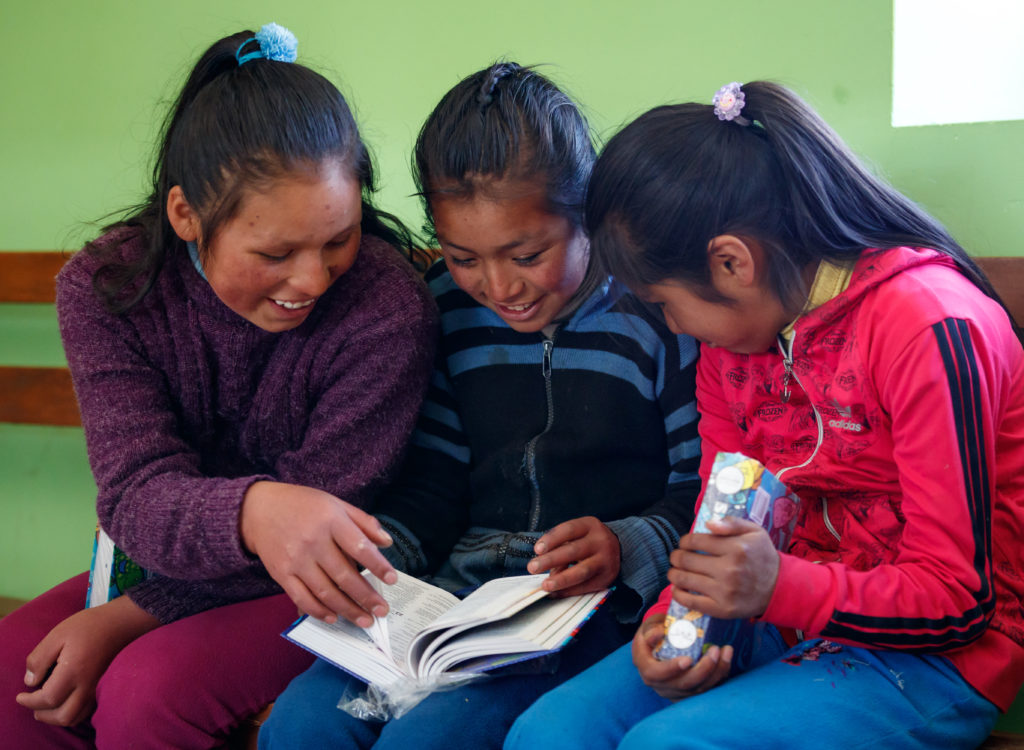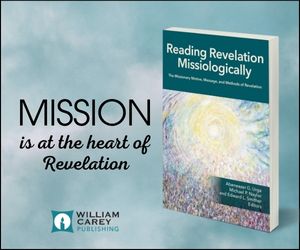EMQ » October–December 2022 » Volume 58 Issue 4

Open Generation
In Barna’s largest generational study to date, we contemplated what it means to minister to and mobilize Gen Z, at a global or local level. The data we’ve gathered on global teens led us to a promising example that teens themselves seem to be setting: to be open.
By Daniel Copeland and Alyce Youngblood
Optimistic. Engaged. Malleable. Curious. Authentic. Inclusive. Collaborative. Open.
These are some of the terms that the team at Barna Group, as well as our project partners (including Alpha, Biblica, World Vision, The Association of Christian Schools International, Bible Study Fellowship, Christ In Youth and Christian Vision), have brought up repeatedly as we’ve analyzed and discussed the findings of a new global study of teenagers. We’ve begun to lean on these warm adjectives as we’ve described what we see in the data on teens, which is now available through a series we’ve titled, appropriately, The Open Generation.
It’s been a pleasant surprise to find this openness broadly associated with teens (in this case, roughly 25,000 of them representing 26 countries). Barna isn’t new to generational research – and the discouragement that sometimes comes with it. The lines of polarization observed in our society glow like neon when we look through a generational lens.
Within the Christian Church, trends show affiliation and attendance declining over time. Among young adults in particular, the headlines point to anxiety, disconnection, skepticism, and vocational crises. (As Millennials ourselves, the authors recognize these well-worn paths.) So, it has been striking to sit with responses of teens worldwide and find … hope.
This is not to naively say “the kids are all right.” We’d be remiss to not acknowledge other research showing the toll the pandemic era has taken on teens’ mental health and social experiences. Indeed, even in our own data, there are significant nuances depending on where a teen lives, whether they experience poverty and so on.
Further, no matter what context a teen lives in, they are still in the early stages of developing their ideas and character. Their appealing openness is, on some level, a reflection of youth. But that fact does not diminish the reality of their overall optimism, and these qualities emerge despite this study having been conducted during a time when teens were living through a global pandemic.
As we contemplate what it means to minister to and mobilize Gen Z, at a global or local level, we find ourselves returning to the example teens themselves seem to be setting: to be open.
#1: Be Open to This Opportunity by Maximizing Their Freedom and Openness
It isn’t hard to relate to Jesus when he affirmed that “In this world you will have trouble” (John 16:33). It’s a direct message that the world isn’t okay. In fact, it’s quite messy, troubling, and confusing. Jesus knew that and experienced it firsthand.
When we conducted our first global study, The Connected Generation, which was an international investigation of 18-to-35-year-olds’ relationship to faith and the Christian church, we weren’t exactly surprised to learn that Millennials feel “uncertain about the future” (40%), “anxious about important decisions” (40%), “afraid to fail” (40%), or “lonely and isolated from others” (23%). It wasn’t new that young adults lived in, what we called, an “age of anxiety,” but it was troubling.
What was new, though, was seeing how much less likely 13-to-17-year-olds were to feel these sobering emotions. In our recent global study of teenagers we found that this age cohort was significantly less likely to feel each of these emotions. Only one in six “always” feel “uncertain about the future” (15%), one in five “anxious about important decisions” or “afraid to fail” (21% and 20%), and only one in ten “lonely and isolated from others” (9%).
These teens were actually more likely to feel things like “able to accomplish my goals,” “deeply cared for by those around me” and “someone believes in me.” Perhaps there are at least two ways we could interpret this. One is that the next generation is already solving mental wellbeing, one of the most pervasive issues of the modern would. The second is that teenagers’ hardest days are likely yet to come, but there may be an opportunity in front of us right now. More on that in a minute.
In a world that is overwhelmed with information and polarized opinions, how beautiful is it to be described as open? It’s a meaningful trait that surely cannot be overlooked.
We titled this study The Open Generation because openness was the trait our team continued to admit as we analyzed this study. For example, 56% say they are motivated to continue learning about the Bible through the rest of their life; 59% percent said the same about Jesus; and 76% said the same about “injustices in society.” In a world that is overwhelmed with information and polarized opinions, how beautiful is it to be described as open? It’s a meaningful trait that surely cannot be overlooked.
In the recent Barna Group publication Children’s Ministry in a New Reality, our research indicated that after about 18 years old, the chances of a Christian being in a discipleship relationship decreases significantly. We called it a “discipleship deadline.”
The lesson between the lines of all of this data is this – data indicates that the teenage years are an opportunity. We know that tough days – mental health and religious drop out – are on the horizon in young adulthood, but perhaps the second half of Jesus’s lesson in John 16:33 can remind us to drop our own anxieties and be open to a generation who is open now, today. “In this world you will have trouble, but take heart for I have overcome the world.” We have to be open to allowing next generations to experience the world, which will certainly include trouble. But we can also lean into the opportunity to equip them for their journey.
#2: Create Open Space for Connections with Teens by Investing in Community and Mentorship
There are countless ways to define poverty: material poverty, informational poverty, generational poverty, etc. I would argue that there is no greater poverty than relational poverty. When we don’t have people around us, we don’t have a way out of hardship. The richest and poorest people in the world are equally vulnerable when they are alone.
You could summarize all of Barna Group’s research on next generations into two words – relationships matter.
In children’s ministry we found that only two out of five Christian children have a meaningful, positive relationship with a mentoring adult. Those two kids? They are significantly more likely than the other three to be rooted in scripture, feel like they belong in their church and express excitement to live out a life of faith.
In Faith for Exiles, David Kinnaman and Mark Matlock found that one of the key distinctives between resilient disciples and habitual churchgoers was the presence of older adults friends and mentors in the resilient disciple’s church growing up. Resilient disciples have been surrounded by caring adults who are dedicated to stewarding the next generation.
In our recent global research on teenagers, we see that teens who have felt the impact of community and meaningful relationships are experiencing an entirely different world.
Let me provide three examples of this from our work.
First, the average Christian teen has had one person teach them how to read or study the Bible, while the average teenager who is meaningfully engaged with scripture has had four people help them. One out of four Christian teens who are unengaged with the Bible never had someone teach them how to read and study it, while half of bible engaged teens say they parent/guardian and a pastor taught them.
Second, teens who are justice motivated to make an impact on the world are significantly more likely to their peers to be rooted in community. They are more likely to say things like “Being part of [my] community is important to me,” “I am satisfied with my community,” and “I have a positive influence over what my community is like.”
Teens who have made a personal commitment to follow Jesus are over twice as likely as than nominal Christians (those who haven’t made commitment to follow Jesus) to be rooted in their religious community.
Third, teens who have made a personal commitment to follow Jesus are over twice as likely as than nominal Christians (those who haven’t made commitment to follow Jesus) to be rooted in their religious community. They are over twice as likely to say, “There is someone in my life who encourages me to grow spiritually,” “The church is place where I feel I belong,” and “I have close personal friends who were adults from my church.”
As researchers, we are always careful not to assume causation, but in each of these examples, the correlation is clear and compelling. Relationships and community cultivate a more fulfilling, meaningful life.
In the digital-information-laden-zoom world, we can be easily convinced that we don’t need to cultivate meaningful relationships. We can also be convinced that that the church is mostly a place for spirituality. The church is a laboratory! It’s a place for people to meet, intermingle, experiment with ideas, learn who they are and experience how to lead.
#3: Be Open to Hands-First Approaches to Sharing Faith
Is it more important to a teen that they believe their faith is true or that they know it is good?
In recent years, Barna researchers have theorized that objective goodness indeed matters more than ever to the rising generation as they come of age amid a more subjective cultural grasp of right and wrong, a generational longing for justice and a growing resistance to perceived hypocrisy. In this kind of atmosphere, evangelical tools like proclamation and apologetics aren’t so effective. If anything, they can become a deterrent to the good news they attempt to share.
Our new global survey continues to confirm this hunch. In relationship to Jesus, at least, teens generally care about seeing that Jesus’ teachings promote good in the world (41%) more so than knowing that his teachings are true and trustworthy (31%). The same is true when it comes to scripture. Teens who are Bible users or Christians prefer to see that the Bible promotes good in the world around them (46%), exceeding their need to know the Bible is true and trustworthy (36%).
For Christian ministers and leaders working with teenagers, this means engaging hands, not just heads and hearts. Teens are looking for action from religious institutions and people of faith, more so than appeals to reason, conviction, or emotion. This seems to be especially true of teens in vulnerable or marginalized contexts.
That same desire to promote goodness and to make a difference may in turn draw teens closer to knowing Jesus – who they believe was an advocate for justice – or studying scripture – which they believe has meaningful things to say about caring for the poor and treating people fairly.
Yes, teens (even Christian ones) have confused or even conflicting ideas about who Jesus is and what that means for their lives. But rather than simply seeking to counter or correct teens in their still-forming beliefs, how can ministers and missionaries instead help them anchor their generous ambitions in catechism or scripture? How can adults model or invite teens’ participation in faith-fueled, open-handed good works? These may be the seeds of holistic, communal, impactful faith in the open generation.
We don’t know yet what might come of teens’ desire to make a difference and their leaning into goodness, or how they might weather the natural effects of coming of age, pandemic-era outcomes or ever-evolving digital realities. It’s likely that certain milestones, influences or experiences may dampen their enthusiasm, presenting some of the challenges that have faced their not-so-much older peers.
It’s also likely, though, that from the open generation will emerge winsome witnesses rooted in community and compassion.
As one teenager shared, “Teens these days are looking for hope and a foundation for themselves. What the Christian life offers is a way of life that can give hope for a better future and a purpose for our lives.”
As one teenager shared, “Teens these days are looking for hope and a foundation for themselves. What the Christian life offers is a way of life that can give hope for a better future and a purpose for our lives.”
Through this research, we’ve had the privilege of being able to assume the posture of curiosity that is commonplace among teens. We believe the opportunity to teach and reach Gen Z lies in first being willing to learn from them.

Alyce Youngblood is the vice president of editorial for Barna Group and manages the production of content for the firm’s reports, website, and other resources. She has a B.S. in journalism and public relations and has worked alongside respected magazines, agencies, book publishers, nonprofits, and startups to clarify their messages for global audiences. She lives with her husband in Nashville, Tennessee.

Daniel Copeland is the associate vice president of research of Barna Group and oversees the strategy, operation, and execution of the firm’s published and proprietary research. Daniel is trained as a social and market researcher and is passionate about producing objective knowledge that inspires meaningful and significant change in the world. Daniel has a B.A. and an M.A. in sociology from Georgia State University, as well as an undergraduate minor in religious studies. He lives with his wife in Atlanta, GA.
EMQ, Volume 58, Issue 2. Copyright © 2022 by Missio Nexus. All rights reserved. Not to be reproduced or copied in any form without written permission from Missio Nexus. Email: EMQ@MissioNexus.org.









Responses